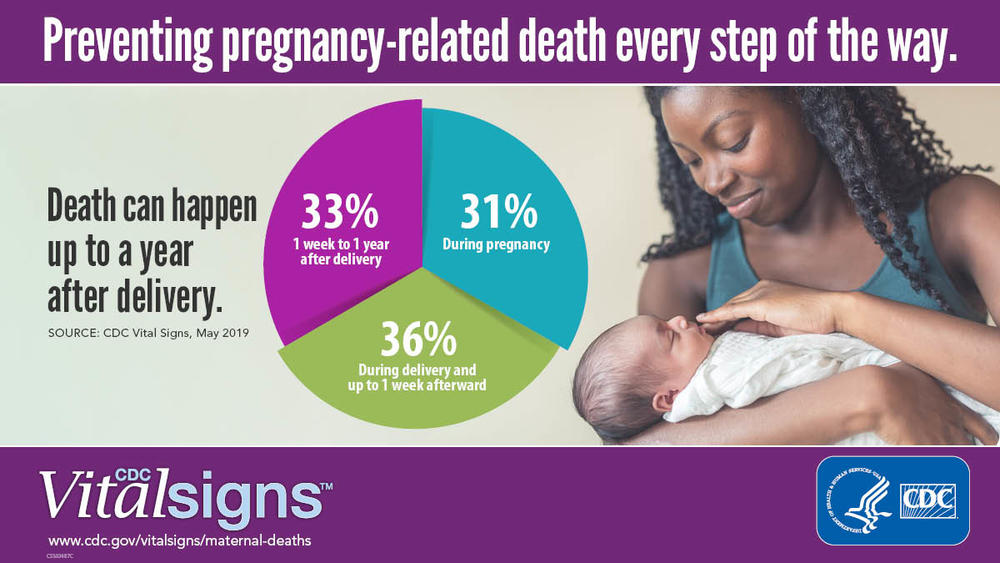Section Branding
Header Content
Rural Georgia Still Most At Risk Of Preventable, Pregnancy-Related Deaths, CDC Says In New Study
Primary Content
The number of mothers who die from pregnancy-related complications has not declined, according to a new report from the Centers for Disease Control and Prevention.
That means women in Georgia — especially in rural parts of the state where access to maternity care is limited or nonexistent — are more likely to die from pregnancy-related complications than in countries much poorer than the United States.
But, the CDC said Tuesday in its Vital Signs report, that most of these deaths are preventable.
The report shows of the 700 pregnancy-related deaths that happen each year in the United States, nearly 31% happen during pregnancy, 36% happen during delivery or the week after, and 33% happen one week to one year after delivery.
RELATED: 37 Percent Of Georgia Counties Considered 'Maternity Care Deserts'
According to the most recent data, Georgia ranks worst in the nation for maternal health care.
CDC Director of Division of Reproductive Health Wanda Barfield said that the new analysis underscores the need for access to quality services, risk awareness and early diagnosis.
"But it also highlights opportunities for preventing future pregnancy-related deaths," she said.
In Georgia, 58 of the 159 counties are without any obstetric providers or hospitals that offers obstetric care, GPB News previously reported. And many women don't have health insurance, despite the availability of Medicaid.
The leading causes of death differ when women die during pregnancy versus after, the CDC's Principal Deputy Director Anne Schuchat said. Heart disease and stroke caused more than one in three deaths overall.
Obstetric emergencies such as severe bleeding and amniotic fluid embolism, which is when amniotic fluid enters a mother's bloodstream, caused most deaths at the time of delivery, and severe bleeding, high blood pressure and infection were most common in the week after delivery, according to the study. A weakened heart muscle, a condition known as cardiomyopathy, caused most deaths one week to one year following delivery.
MORE: Black Mothers Keep Dying After Giving Birth. Shalon Irving's Story Explains Why
Schuchat also said the most recent data confirms persistent racial disparities from 2011 to 2015.
"Black, American Indian and Alaska Native women were about three times as likely to die from a pregnancy-related cause as white women," Schuchat said. "Alarmingly, states' maternal mortality review committees found that about three in five pregnancy-related deaths could potentially be prevented."
Tuesday's report shows there are big picture systems-level changes that could help ensure all pregnant women receive high-quality care during pregnancy, at delivery and up to a year afterward, Schuchat said.
"Two examples are standardizing response to obstetric emergencies and making it easier for women to receive prenatal and postpartum care that they need," she said.


